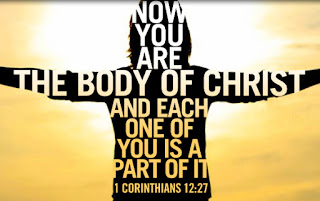Meditation on weakness & strength, love & reconciliation: many members, one body. Theme from 1 & 2 Corinthians.
As for the body, it is solid and strong and curious and full of detail; it wants to polish itself; it wants to love another body; it is the only vessel in the world that can hold, in a mix of power and sweetness: words, song, gesture, passion, ideas, ingenuity, devotion, merriment, vanity, and virtue. […]

